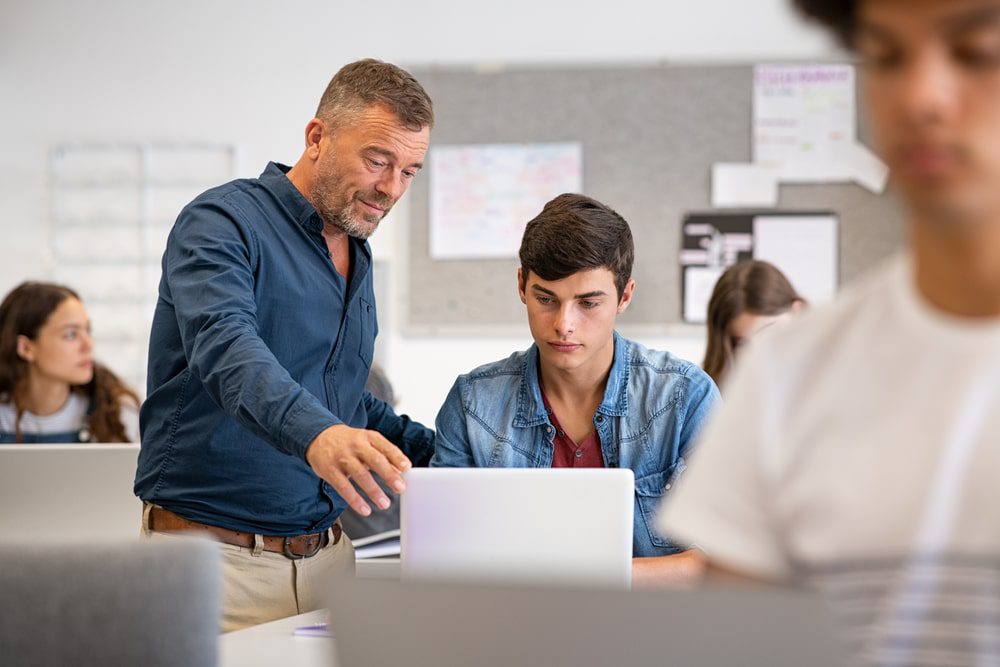New South Wales teachers are expecting a historic salary increase from the Labor government, which the state’s union believe is a step in the right direction
Whilst the union welcomed the pay rise, it said there is also potential inside public classrooms to address the inequity in Australian schools.
Teachers across NSW want to see more changes in government schools to help support public students’ education and the teacher employment rate.
Public high school teacher Charlie Charlier said the inequity in the NSW schooling system is evident, with more to be resolved regarding funding.
“Government schools are under-funded and, for the most part, at least on a per student basis, private schools are overfunded,” Mr Charlier said.
“A lot of government schools just don’t have the resources that other schools do and that doesn’t mean that teachers don’t do amazing work and students don’t do that too, but the lack of resources is hard and it can be really hard to work with.
“Whether it’s just tech that doesn’t work or whether it’s just students who want to try something, but you just can’t support them because the money isn’t there, we just need more money in the right places.”

Interview with English/History teacher Charlie Charlier
A recent study from Save Our Schools (SOS) Australia, showed that in 2022, public schools in NSW were funded at 87.4 percent of their Schooling Resource Standard (SRS) while private schools were funded at 105.9 percent of their SRS.
Public schools are predicted to remain under-funded until 2029 while private schools are expected to remain over-funded for more than a decade, according to the SOS study.
The NAPLAN underperforming minimum standards of year nine students shows a correlation between student performance and economic background.

Charlie Charlier believes that teachers receive poor preparation for exams such as NAPLAN, and hopes changes are made.
“A lot of teachers don’t feel prepared when they start teaching and we see that a lot,” he said.
“I feel like, and certainly my Uni experience mirrored this, that there are a lot of things that could be taught more explicitly at university.
“I think this is an area we can definitely improve to try and prepare new teachers and improve that [teacher] dropout rate which is just huge.”
Public high school teacher Rudi Yacoub said the problem with the education system is that graduates are underprepared when entering the teaching sector.
“I did not feel like I was prepared for the job, there’s a lot of things that university leaves out in terms of like, the practical sense,” he said
“They do a pretty good job of preparing you in terms of the theoretical sense of it, but in terms of the practical sense there’s certain things that you can only learn by being in the classroom.”
“Building relationships with students is not something that can be taught theoretically, it’s something that you really just got to be in the classroom for.”
The expected pay rise from the NSW government has lifted many teachers’ hopes and is set to take effect on October 4.
In a recent media release the NSW Teachers Federation Acting President Henry Rajendra expressed the organisation’s approval and belief in fair education.
“The teacher shortage is a crisis that brewed for 12 long years. It can only be tackled by paying teachers what they are worth,” he said
“The proposed agreement is a breakthrough moment. We will attract and retain more hardworking teachers and prevent them drifting to other professions or states.”
Mr Rajendra said that thousands of teachers have fought tirelessly because they believe in the value and social purpose of teaching.
“All kids deserve a decent shot at life, regardless of background or bank balance.”
As the government takes action towards schooling inequity, there is potential to tackle the statewide teacher shortage taking.
In a South-West Sydney high school an after-school program called Homework Centre promotes education and teaching for students as well as teachers. Find out why teachers involved consider this more than a simple after-school program and how the new pay rise is contributing to NSW schools.

